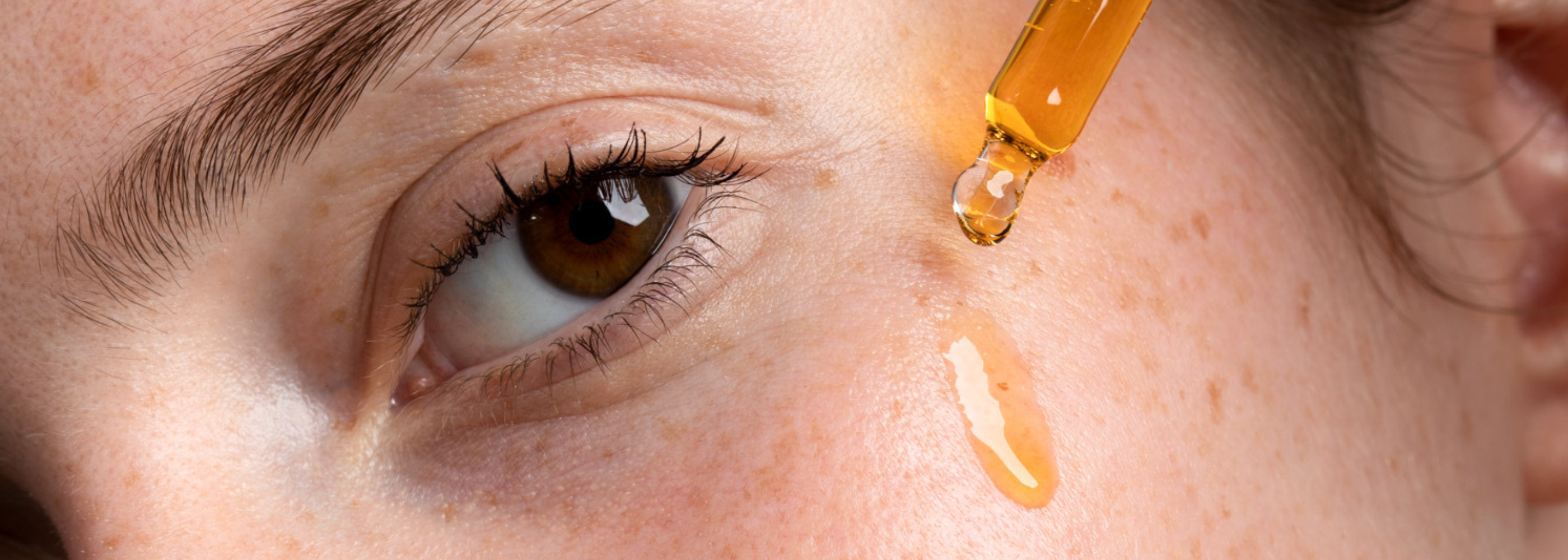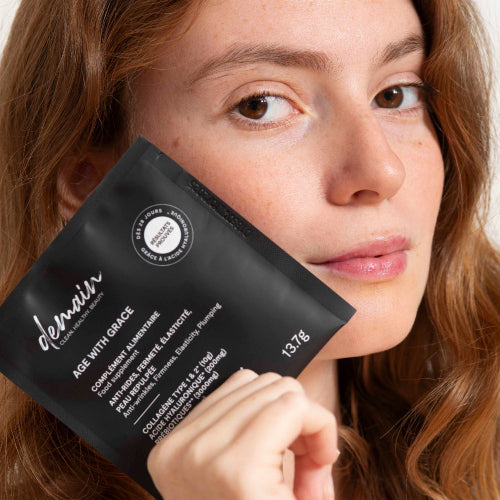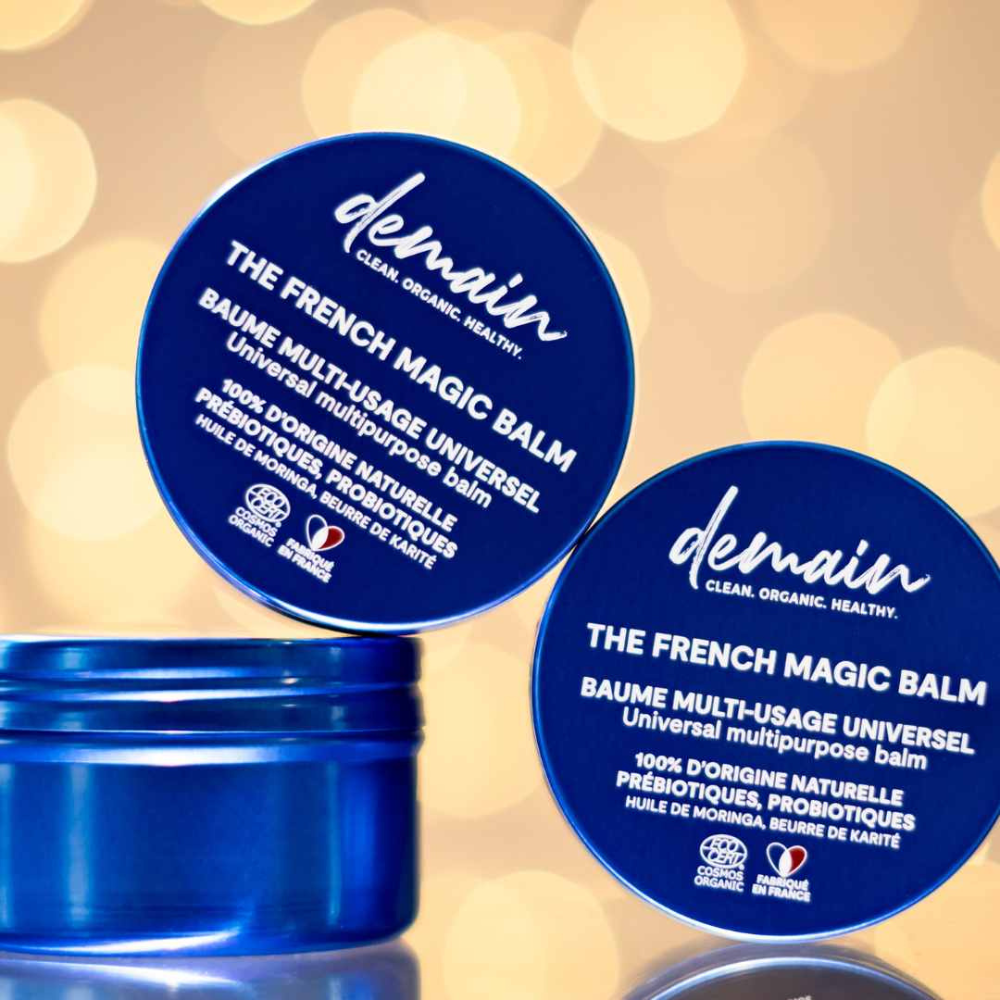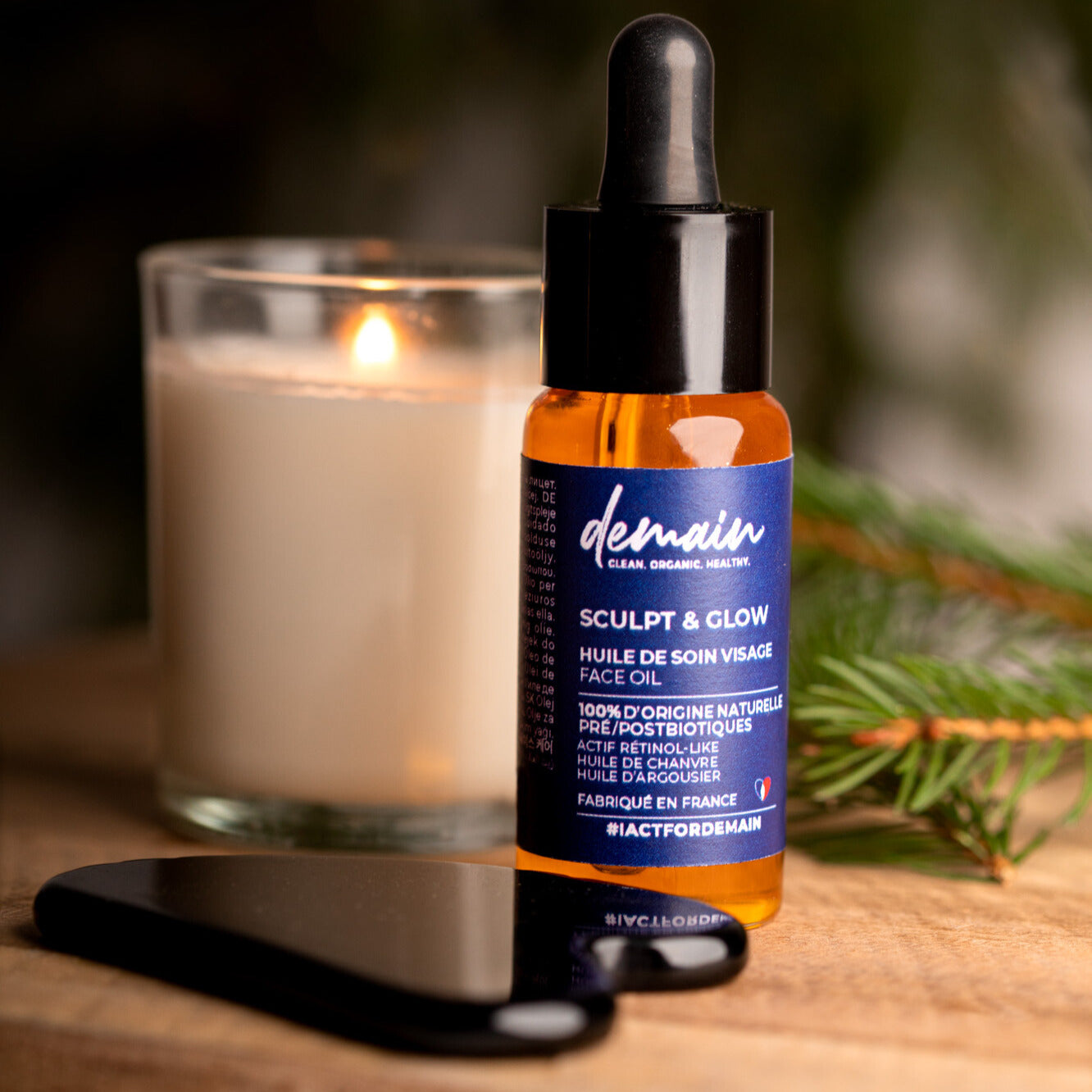The skin, our largest organ, constantly undergoes a cycle of cell renewal, an essential process for maintaining its health and vitality. This regeneration, which occurs deep within the skin, is particularly active during the night. Sleep therefore plays a crucial role in the functioning of the epidermis. However, several factors can influence this process, such as diet or the use of specific products. Let's discover together how to optimize this rest time for radiant skin when you wake up.
The process of cell renewal
Keratinocytes make up the majority of cells in the epidermis. Their primary function is the synthesis of keratin, a protein that gives the skin its strength and waterproofness.
These cells also play a major role in epidermal regeneration. Indeed, they are responsible for the production of new skin cells.
- Keratinocytes originate from the deepest layer of the epidermis, the basal layer.
- They gradually migrate to the surface of the skin while undergoing various transformations.
- Upon reaching the surface, they replace the dead cells eliminated during the desquamation process.
Keratinocytes are therefore essential players in epidermal cell renewal. They help maintain the health, integrity, and vitality of our skin.
How does the skin rebuild itself?
Cell renewal is a natural process that allows the skin to regenerate. This process involves the removal of dead cells from the surface of the epidermis, which are replaced by new cells produced in the deeper layers of the skin. This cycle, which lasts approximately 21 days for skin cells, helps maintain the skin's radiance and firmness.
During this renewal process, stem cells located in the deeper layers of the epidermis actively divide to produce new skin cells. These new cells then migrate to the skin's surface, where they replace the dead cells shed by the desquamation process.
This cell renewal is essential for several reasons. It helps fight the appearance of wrinkles and slow down the signs of skin aging. Additionally, cell renewal contributes to the regeneration and repair of damaged tissues and helps maintain a strong immune system by replacing worn-out immune cells with new ones.
The role of keratinocytes in epidermal regeneration
The impact of acne on skin renewal
Acne is a skin condition that can interfere with the skin's renewal process. Acne pimples are the result of inflammation and clogged skin pores, which can disrupt the skin cell life cycle. Acne lesions can damage skin cells and slow their renewal.
Additionally, acne can leave scars and marks on the skin, indicating a disruption in the skin's regeneration process. These scars are the result of the skin's repair process after inflammation. They can take time to disappear, depending on the individual skin's regenerative capacity.
Similarly, some acne treatments can affect skin renewal. Some can dry out the skin, which can disrupt cell renewal and make it more vulnerable to external aggressions. Therefore, it's crucial to choose the right treatments and take care of your skin to promote renewal.
How to increase skin regeneration?
There are several methods that can be used to increase skin regeneration. One of these is the use of products containing alpha hydroxy acids (AHAs). These acids help promote exfoliation, removing dead skin cells to make way for new ones.
Adopting regular skincare routines can also be beneficial. This includes cleansing, moisturizing, and applying specific products like anti-aging serums or creams.
Paying attention to your diet is equally essential. Consuming foods rich in vitamins like vitamin C and E, known to stimulate collagen production and fight free radicals, can greatly contribute to skin regeneration.
Finally, keeping your body well hydrated by drinking at least 2 liters of water a day is crucial. This not only helps keep your skin hydrated, but also promotes blood circulation, which is essential for skin regeneration.
The influence of food on skin regeneration
Our diet can greatly influence the regeneration of our skin. A balanced, nutrient-rich diet helps maintain healthy, glowing skin. Certain foods are particularly beneficial for the skin, thanks to their richness in vitamins, minerals, and antioxidants.
- Foods rich in vitamins A and C , such as citrus fruits, eggs, cheese, and organ meats, are particularly beneficial. Vitamin A helps maintain skin integrity and promotes cell renewal. Vitamin C, on the other hand, is a powerful antioxidant that protects skin from free radical damage and stimulates the production of collagen, essential for skin firmness and elasticity.
- Omega-3s , found in oily fish like salmon and walnuts, help keep skin hydrated and supple.
- Foods rich in antioxidants , such as berries, green tea, and green leafy vegetables, help protect skin from oxidative damage, which can accelerate skin aging.
- Finally, water -rich foods, such as cucumbers, melons, and watermelons, help keep skin hydrated from within.
It is essential to combine a healthy diet with other healthy lifestyle habits, such as good hydration, quality sleep and adequate sun protection, to support the skin regeneration process.
The Importance of Hydration for Healthy Skin
How to repair your skin deep down?
Hydration plays a central role in skin health, going far beyond simply preventing dryness. Proper hydration promotes cell regeneration, a process essential for healing minor injuries and achieving an even complexion. It also strengthens the skin's protective barrier, making it more resistant to external aggressors.
On a daily basis, properly hydrated skin is more supple, luminous, and elastic, which helps prevent fine lines and wrinkles. To maintain well-hydrated skin, it is recommended to drink at least two liters of water per day and use products suited to your skin type. This can include day creams, night creams, and products containing hydrating active ingredients like hyaluronic acid or glycerin.
From a nutritional perspective, certain vitamins, such as vitamin B5, promote skin hydration, improving its elasticity and barrier function. Finally, it's important to note that skin hydration isn't just a luxury, but a fundamental need to maintain the skin's beauty and health.
The benefits of essential oils for the skin
Essential oils offer a multitude of benefits for the skin. They are known for their antifungal , anti-inflammatory and antibacterial properties that promote skin regeneration by stimulating healing.
- Lemon essential oil, for example, stimulates cell regeneration and helps improve skin texture.
- Italian Helichrysum essential oil is known for its healing and regenerative properties.
- Carrot essential oil, rich in carotol, has a healing action and regenerates skin cells.
However, it is vital to remember that essential oils must always be diluted in a vegetable oil before applying them to the skin to avoid any risk of irritation.
Overnight skin regeneration: myth or reality?
We often hear that while we sleep , our skin works to repair and regenerate itself. But is this really the case? The answer is yes. While we sleep, our skin enters a phase of intense repair. It is during this time that blood circulation to the skin increases, providing oxygen and nutrients necessary for cell regeneration.
Concretely, during sleep , the production of collagen, an essential protein for youth and elasticity of the skin , is stimulated. In the same way, the production of melanin, the pigment responsible for the color of our skin, is also increased.
It is therefore during the night that our skin renews itself.
The role of sleep in skin regeneration
Restful sleep promotes better skin regeneration . During the night, our body initiates cell repair and renewal processes, which are essential for skin health.
The quality of our sleep directly influences skin regeneration . Disturbed sleep can hinder this process, making the skin dull and promoting the appearance of signs of aging.
On the contrary, quality sleep promotes the release of growth hormones , thus stimulating the repair of damaged skin tissue. In addition, during sleep, skin blood flow increases, bringing oxygen and nutrients to the skin, which promotes cell regeneration.
Hence the importance of adopting a regular and sufficient sleep routine for healthy skin.
How to speed up the healing process?
To speed up healing, several factors must be considered. Hygiene is essential: clean the wound with mild soap and water, then dry it carefully. Applying a clean bandage helps protect the wound from bacteria and promotes cell regeneration.
- Use of healing creams : Some contain moisturizing, soothing and restorative active ingredients to promote the healing mechanism.
- Balanced Diet : Good nutrition is essential. Foods rich in protein, vitamin C, and zinc contribute to tissue repair.
- Hydration : Drinking plenty of water helps flush out toxins and improves blood circulation, which can help speed up healing.
- Natural Care : Some natural remedies like coconut oil, honey, or aloe vera are known for their healing properties.
Always remember to consult a healthcare professional in case of a deep wound, infection or slow healing.
The duration of the facial skin renewal cycle
The facial skin renewal cycle is a crucial phase that determines the quality and appearance of our epidermis. This process is not instantaneous, but extends over a defined period. Generally, the average duration is about 28 days in a healthy adult. This means that it takes about a month for a newly formed cell to migrate from the basal layer of the epidermis to the stratum corneum, where it will eventually be eliminated.
However, this duration can vary depending on several factors. For example, in young adults, the cycle can be faster, ranging from 14 to 21 days. With age, the renewal rate gradually slows down. Thus, after age 50, the cycle can extend to 37 days or more.
Therefore, it is important to understand that this cycle is an average estimate and can vary from person to person depending on factors such as age, genetics, and overall skin health.











